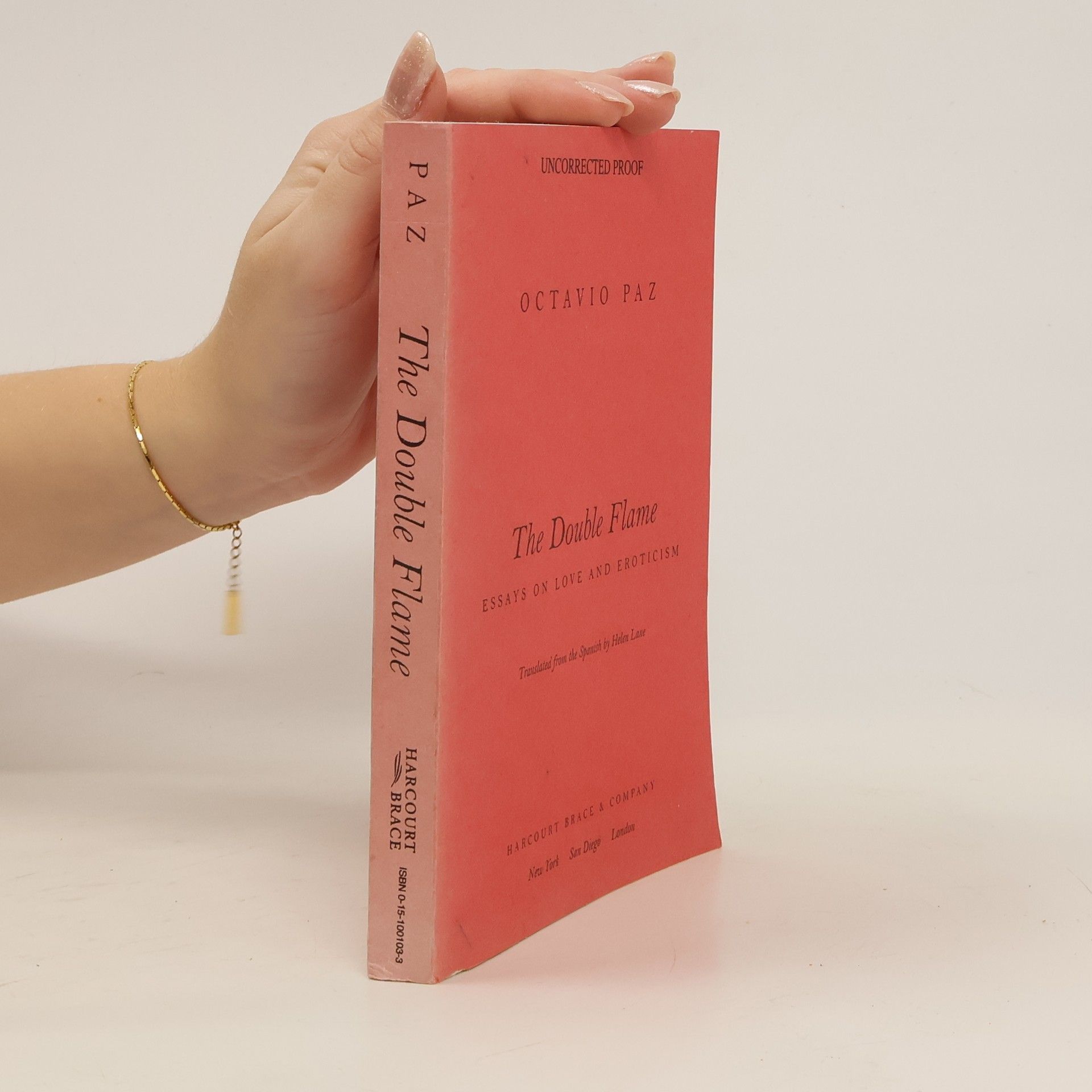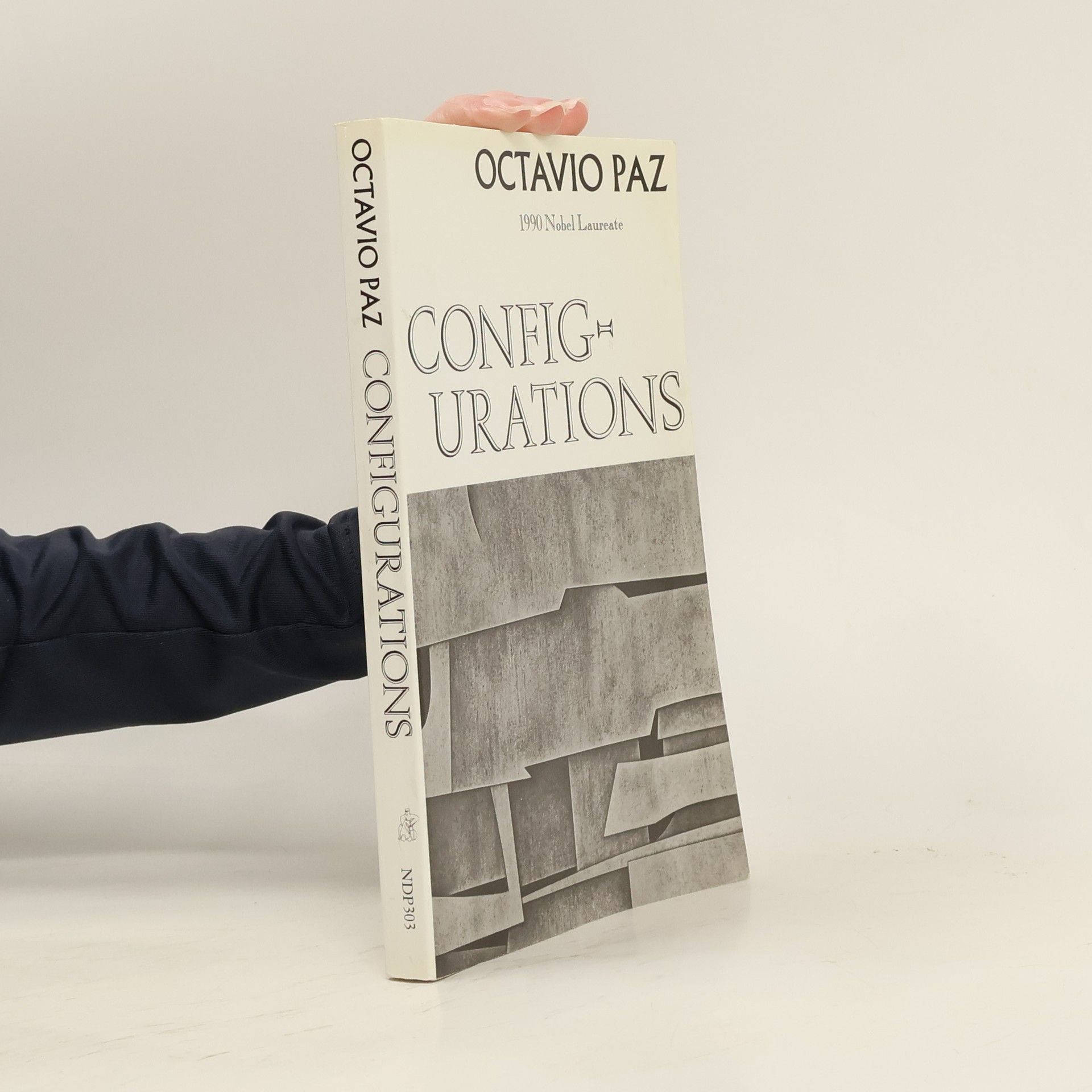A Tree Within ( Arbol Adentro ), the first collection of new poems by the great Mexican author Octavio Paz since his Return ( Vuelta ) of 1975, was originally published as the final section of The Collected Poems of Octavio Paz, 1957-1987 . Among these later poems is a series of works dedicated to such artists as Miró, Balthus, Duchamp, Rauschenberg, Tapies, Alechinsky, Monet, and Matta, as well as a number of epigrammatic and Chinese-like lyrics. Two remarkable long poems ––”I Speak of the City,” a Whitmanesque apocalyptic evocation of the contemporary urban nightmare, and “Letter of Testimony,” a meditation on love and death––are emblematic of the mature poet in a prophetic voice.
Octavio Paz Boeken
Deze Mexicaanse auteur wordt geprezen om zijn gepassioneerde poëzie en essays, gekenmerkt door brede horizonten en zinnelijke intelligentie. Zijn werk verkent diepe menselijke vragen met integriteit. Als Nobelprijswinnaar wordt zijn schrijven gewaardeerd om zijn intellectuele diepgang en artistieke schoonheid.







Configurations
- 222bladzijden
- 8 uur lezen
Octavio Paz, the 1990 Nobel Laureate, has won distinction as an anthropologist, philosopher and critic of art and literature. But it is as a poet that he is most celebrated. Configurations was his first major collection to be published in this country, and includes in their entirety Sun Stone (1957) and Blanco (1967). Paz himself translated many of the poems from the Spanish. Some distinguished contributors to this bilingual edition include, among others, Paul Blackburn, Lysander Kemp, Denise Levertov, and Muriel Rukeyser.
The Double Flame
- 276bladzijden
- 10 uur lezen
"In The Double Flame, Nobel Laureate Octavio Paz explores the intimate connection between sex, eroticism, and love - themes that have been a constant in his writing, from his first published poems to the great works of his maturity. Beginning with Plato's Symposium, he gives a short history of love and eroticism in literature throughout the ages: from the influence of the great cities Alexandria and Rome on the development of love poetry, to courtly love in Heian Japan and twelfth-century France, to love in modern novels such as Madame Bovary and Ulysses. Rich in scope, The Double Flame examines everything from taboo to repression, Carnival to Lent, Sade to Freud, Original Sin to artificial intelligence."--BOOK JACKET.
The Labyrinth of Solitude
- 416bladzijden
- 15 uur lezen
As well as the nine essays on his country's psyche and history that make up The Labyrinth of Solitude, this highly acclaimed volume also includes The Other Mexico, Paz's heartfelt response to the government massacre of over three hundred students in Mexico City in 1968, and Return to the Labyrinth of Solitude, in which he discusses his famous work with Claude Fell. The two final essays contain further reflections on the Mexican government.
La Estación Violenta
- 83bladzijden
- 3 uur lezen
Octavio Paz (1914-1998) ofrece en La estación violenta una obra que pertenece a una de las mejores etapas creativas. Este libro recoge los " Himno entre ruinas", "Máscaras del alba", "Fuente", "Repaso nocturno", "Mutra", "¿No hay salida?", "El río", "El cántaro roto", y "Piedra de sol".
In seven elegant essays that range across centuries and literatures, Paz offers his thoughts on how modern poetry came to be, what makes it "modern," and what it may become. Translated by Helen Lane.
Children of the Mire
Modern Poetry from Romanticism to the Avant-Garde, New and Enlarged Edition
- 193bladzijden
- 7 uur lezen
Octavio Paz launches a far-ranging excursion into the "incestuous and tempestuous" relations between modern poetry and the modern epoch. From the perspective of a Spanish-American and a poet, he explores the opposite meanings that the word "modern" has held for poets and philosophers, artists, and scientists. Tracing the beginnings of the modern poetry movement to the pre-Romantics, Paz outlines its course as a contradictory dialogue between the poetry of the Romance and Germanic languages. He discusses at length the unique character of Anglo-American "modernism" within the avant-garde movement, and especially vis-a-vis French and Spanish-American poetry. Finally he offers a critique of our era's attitude toward the concept of time, affirming that we are at the "twilight of the idea of the future." He proposes that we are living at the end of the avant-garde, the end of that vision of the world and of art born with the first Romantics.
Examines the Pre-Columbian, Colonial, Nineteenth Century, and Twentieth Century periods of Mexican art and artifacts
Výbor z esejů mexického básníka v překladu Vladimíra Mikeše.
Stvořeni z hlíny: Od romantismu po avantgardu
- 158bladzijden
- 6 uur lezen
Stvořeni z hlíny. Od romantismu po avantgardu (1974) je stěžejní esejistickou knihou Octavia Paze o moderní poezii. Přinesla originální pohled na téma modernity „z druhého břehu“. Mexický básník v ní uvažuje o podvojném vztahu evropské a americké lyriky k moderní éře, k níž poezie patří a od níž se zároveň svou podstatou odlišuje: je v ní napětí mezi vyznáváním nové poetiky, zlomů, revoluce a mezi analogickým viděním světa, které je jádrem metafory, poezie jako dotyku prvotní jednoty, kdy „vesmír hovoří lépe než člověk“. Výchozí je Pazova myšlenka „tradice zlomu“, kdy tradicí se stává sám rozchod básníků s tradicí. Octavio Paz v knize sleduje pulzování evropské a americké poezie od Blakea, Hölderlina, německých a anglických romantiků, přes Whitmana, Baudelaira, francouzské symbolisty a hispanoamerické „modernisty“, po Eliota, Pounda, francouzskou a španělskou avantgardu. Noří se do rytmu jazyků, vydává se do šíře kulturních kontextů. I když je v evropské poezii doma (ostatně žil i v Paříži a přátelil se s Bretonem), nabízí mexický autor odstíněný transatlantický úhel pohledu. Vyvstane v něm různý rytmus literárního vývoje v různých zemích i specifičnost Hispanoameriky oproti Severní Americe.



